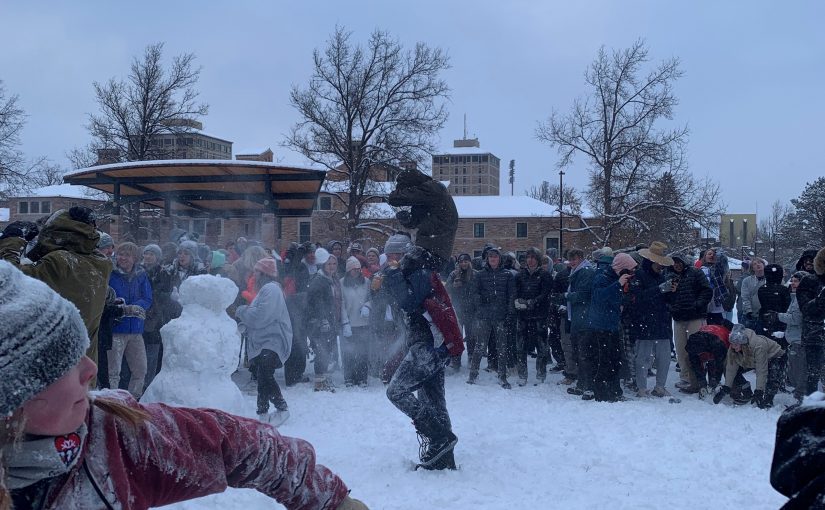As a university police department, the University of Colorado Boulder Police Department (CUPD) serves a “city within a city.” Roughly 37,000 students, faculty, and staff reside and/or work on the campus of Colorado’s flagship university, the University of Colorado Boulder (CU Boulder). CU Boulder is surrounded by a well-educated, civic-minded community. As is the case with most cities, not all of the stakeholders regularly engage with police in a positive manner. That means the department must work diligently to build trust. And, since the city receives an average of 89 inches of snowfall per year, the agency likens its engagement efforts to rolling a snowball: start small, keep at it, don’t give up… and pretty soon you have something big enough to provide balance and support. It’s the “snowball effect.”
Any police department can adopt CUPD’s proactive stance on community engagement. In fact, doing nothing is no longer an option. Police agencies must engage their stakeholders in activities that educate, empower, and build stronger relationships. Here in Colorado, we are wary of avalanches (unless they hold hockey sticks), but we do believe our small steps will have a snowball effect. Small actions taken now will cause bigger actions and results, ultimately leading to noticeable change.
Of course, the current approach had to start somewhere. When I became chief of police in 2018, the university had been through a series of transitions, which meant building trust and engaging with the campus community on all levels was paramount to not only my effectiveness, but the success of the department in its mission to provide public safety services to meet the unique needs of its community.
CUPD offers some tips for agencies seeking to start their own blizzard of positive community engagement, along with some lessons learned along the way.
Gauge The Climate: Is a Storm Coming?
For many students, interacting with residential service officers, community safety officials, or police officers at CU Boulder may be the first time they’ve encountered law enforcement on their own, without their parents’ involvement to help navigate complex situations. And, along with their backpacks, bikes, and skateboards, they may have brought with them a healthy skepticism of law enforcement, having come of age in the post–George Floyd era where calls to defund the police dominated news cycles.
To compound those challenges, incoming freshmen (and sophomores, for that matter) had spent their last years of high school or first years of college practically homebound, learning remotely in their bedrooms or their families’ kitchens during the COVID-19 pandemic. They may have missed some crucial opportunities to engage in critical thinking to challenge their perspectives. Many other agencies may have experienced a similar form of “arrested development” in their communities. Start slowly and introduce positive ways to engage.
One of CUPD’s most successful ways to engage fills a need: filling the bellies of hungry college students and giving them an extra boost of energy to start their day. Coffee with a Cop, hosted several times each semester, is pretty much a no-brainer. The cost-benefit ratio shows that a little legwork (e.g., ordering and transporting coffee, setting up tables, staffing the event) yields positive, qualitative results. The agency promotes the locations in advance on social media (Twitter, Facebook and Instagram), give it an extra boost of promotion the morning of each event and then “bank” the good vibes created during the event. These Coffee with a Cop events create goodwill that reaches beyond campus, often showing up in parents’ and professors’ Twitter feeds.
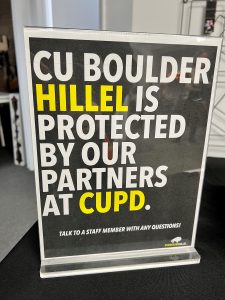 On occasion, students express another need: the need for a more visible police presence at events, at night, or during holidays. They call on CUPD for extra patrols. Whether these members of the community feel marginalized or fearful of backlash due to certain global events or sentiments, CUPD does its best to create a cheerful yet powerful shield. Officers bring smiles as well as badges. CUPD regularly performs extra patrols at Hillel, a Jewish student organization, and officers paid them an extra visit during Faith & Blue weekend. The officers and staff have gotten to know the students and their hopes, dreams, and concerns. We have built relationships.
On occasion, students express another need: the need for a more visible police presence at events, at night, or during holidays. They call on CUPD for extra patrols. Whether these members of the community feel marginalized or fearful of backlash due to certain global events or sentiments, CUPD does its best to create a cheerful yet powerful shield. Officers bring smiles as well as badges. CUPD regularly performs extra patrols at Hillel, a Jewish student organization, and officers paid them an extra visit during Faith & Blue weekend. The officers and staff have gotten to know the students and their hopes, dreams, and concerns. We have built relationships.
This type of genuine interaction has led to mutual interest in CUPD’s training and efforts to embrace transformative change within the policing industry. Hillel members, as well as religious leaders from St. Aidan’s Episcopal Church next door, wrote letters of support to strengthen CUPD’s application for active bystander training. With the support of the campus and wider Boulder community, CUPD became the first university police department in the state of Colorado to be selected as an ABLE Project partner agency. It started with listening to and understanding the community’s desire for change. Thanks in part to that community support, CUPD is on track to have all of its officers trained to recognize police misconduct and intervene if necessary.
Build Your Base: Engage With Skepticism
In August 2020, amid a U.S.-wide wave of protests after the murder of George Floyd at the hands of a Minneapolis. Minnesota, officer, CU Boulder created a community safety task force to examine issues of concern voiced by students, faculty, and staff governance, which ultimately resulted in the creation of a Community Oversight Review Board. This board remains active today and its students, professors, staff members, and residents of Boulder are now some of CUPD’s staunchest advocates.
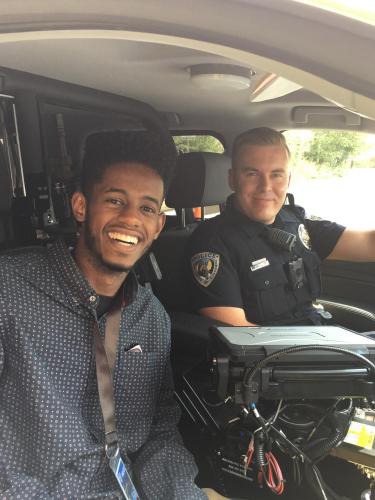 One board member, a law student and civil rights advocate, was already working part-time for the police department. Another helped CUPD launch an educational campaign to help students better understand emergency alerts protocols, appearing in CUPD-produced Instagram videos. Both parties also looked for other ways to partner on issues of mutual interest. Officers and board members laced up their sneakers and ran together in a campus-sponsored 5K race for sexual assault awareness.
One board member, a law student and civil rights advocate, was already working part-time for the police department. Another helped CUPD launch an educational campaign to help students better understand emergency alerts protocols, appearing in CUPD-produced Instagram videos. Both parties also looked for other ways to partner on issues of mutual interest. Officers and board members laced up their sneakers and ran together in a campus-sponsored 5K race for sexual assault awareness.
Instead of shying away from tough questions during a period of distrust of police, CUPD leaned into the calls for transparency into the department’s hiring, training, and internal affairs processes. And we didn’t stop there. Members of the oversight board were among the first to review the concept for a CUPD crime dashboard, providing constructive feedback into the development and presentation of this transparency tool, which includes an instructional video and glossary of terms to help lay people decipher common police terminology. Still fairly cutting-edge for universities, data dashboards are becoming popular among municipal agencies and can become a powerful way to engage community members, better understand the type of information they seek, and help them interpret it.
Through no fault of our own, even CUPD’s strongest relationships with students come to an end. The students graduate and become productive members of society. This outcome, however positive, creates a unique challenge for university police departments: each year, they have a new audience. As campus public safety leaders, university departments must continually build trust. As students commence with their post-academic lives and the Community Oversight Review Board seeks new members, CUPD will continue its commitment to transparency, accountability, and intense engagement. Your agency can do it too, meeting an aging or fast-growing or highly transient community where they are to better understand and fulfill their needs.
Shore Up the Middle: Become the Change You Want to See
In spring 2022, CUPD started training and working with its largest and most diverse recruiting class yet. The agency strives to be the embodiment of the community its serves, not only on campus but in the wider Boulder community.
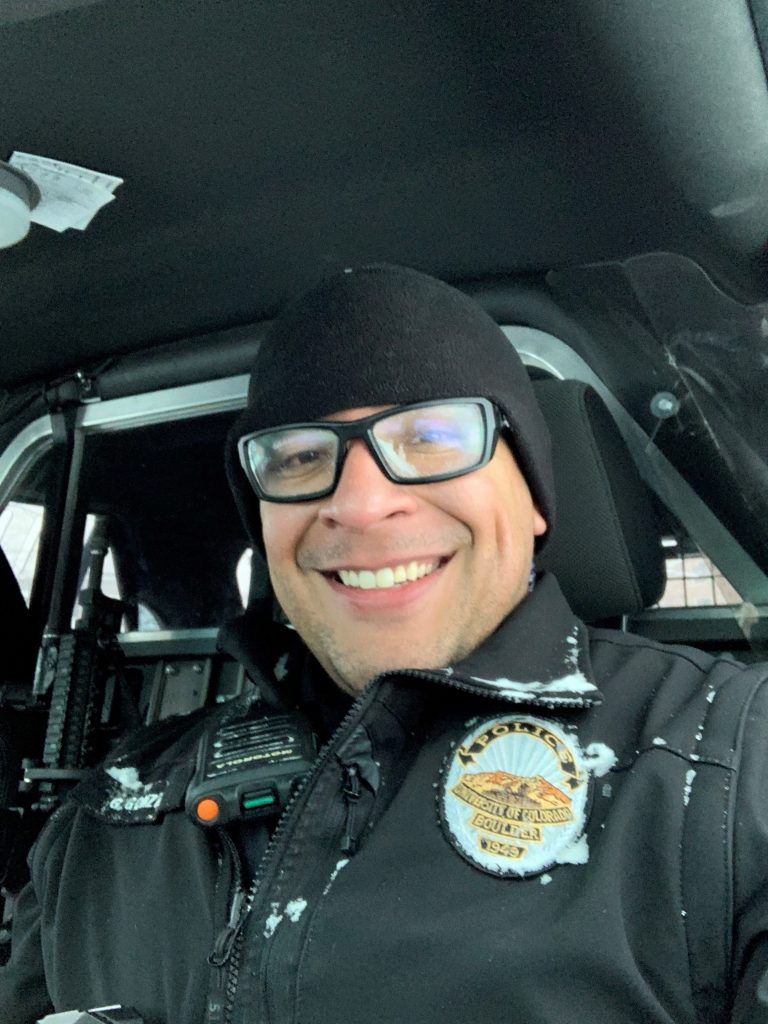 Attracting diverse applicants to a majority white community with a high cost of living is not easy. As a university department, CUPD is able to offer a tuition benefit for up to nine academic credits per year, allowing members (or their dependents) to earn their degrees tuition-free or at a reduced cost. Municipal departments probably can’t do that—but they CAN listen to what members want and try to provide perks such as bicycle patrol training, low-cost professional development (disguised as a book club) to build valuable skills they can use at work, team building that provides communication tools to reduce stress at home, and—of course—food. I’m not ashamed to say I’d rather meet over lunch or dinner to ensure productivity and good results!
Attracting diverse applicants to a majority white community with a high cost of living is not easy. As a university department, CUPD is able to offer a tuition benefit for up to nine academic credits per year, allowing members (or their dependents) to earn their degrees tuition-free or at a reduced cost. Municipal departments probably can’t do that—but they CAN listen to what members want and try to provide perks such as bicycle patrol training, low-cost professional development (disguised as a book club) to build valuable skills they can use at work, team building that provides communication tools to reduce stress at home, and—of course—food. I’m not ashamed to say I’d rather meet over lunch or dinner to ensure productivity and good results!
CUPD is leading the Pac-12 conference toward increasing the number of female recruits and officers to 30 percent by the year 2030. The department signed the 30×30 Pledge in 2021 and today, with CUPD’s encouragement, all Pac-12 universities with permanent chiefs have joined in this commitment to gender diversity. CUPD also added a diversity and inclusion statement to its website, something any agency can do. Inclusivity action points include researching ways to send emergency alerts in multiple languages (coming soon) and meeting with a deaf student to better understand his concerns about how the campus reaches out to hearing-impaired students during emergencies.
Use Your Head: Find the Support You Need
There’s an increased focus on the mental health of first responders, with good reason. After years of stress working directly with the public during the COVID-19 pandemic, compounded by staffing issues, long hours and—in some cases—mandatory overtime, many police officers are ready to accept back-up support. At CUPD, we are leaning on professional staff members who can provide specialized services and expertise to benefit the community. The department was able to create two embedded positions: a licensed clinician/co-responder who provides support during calls involving mental health concerns, and a victim advocate who offers in-the-moment emotional support for those who have experienced trauma.
Additionally, we look out for our own mental health. CUPD offers on-demand counseling through an outside psychological services agency, and the university has taken the extra step to train its licensed clinicians and therapists to better respond to the mental health needs of first responders, should we call on them. The department also created a CUPD Wellness Committee, which plans activities such as cricket games on campus and hikes in the nearby Boulder foothills—and invites community members to join them! These health-boosting activities are intentional and essential. Municipal departments may be able to build stronger relationships with internal or external advocacy offices.
Show Your Work
Sometimes, it’s not enough to work diligently behind closed doors. Every now and then, it’s important to be highly visible, so that the community understands how the department’s specialized training will benefit them. That can be a heavy lift, especially if it inconveniences the community (think traffic jams, noise, or use of a popular location for multiday training).
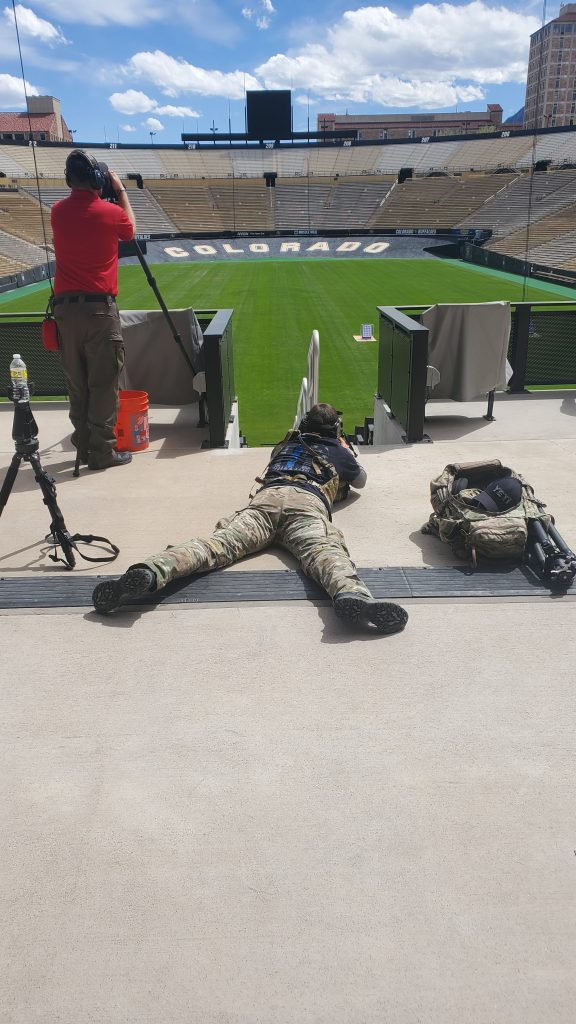 Earlier this year, CUPD was fortunate to gain the support of university leadership to host a three-day, live fire crisis response team training at CU Boulder’s iconic football stadium, Folsom Field. This training exercise allowed CUPD to work with local and national partners in a real-life setting, coordinating efforts to respond to incidents in a large, public venue. These same partners would be called upon to assist CUPD in the event of a critical incident at Folsom Field, which meant the training benefits were wide reaching and clear.
Earlier this year, CUPD was fortunate to gain the support of university leadership to host a three-day, live fire crisis response team training at CU Boulder’s iconic football stadium, Folsom Field. This training exercise allowed CUPD to work with local and national partners in a real-life setting, coordinating efforts to respond to incidents in a large, public venue. These same partners would be called upon to assist CUPD in the event of a critical incident at Folsom Field, which meant the training benefits were wide reaching and clear.
Since the training involved audible gunshots being fired into secure, steel traps, CUPD understood the importance of communication to help avoid triggering negative emotions, especially here in Boulder, a community that faced a mass casualty event at a local grocery store in March 2021. The department planned its communication strategy well in advance, garnering support from local partners to bolster the messaging. CUPD notified university students, professors, and staff—along with wider community residents—via email, social media, university and local media coverage, and physical signage. The results were stellar. The training event received positive media coverage, resulting in the public having a much better understanding of police training and how that helps keep them safe.
Bundle Up: This Could Take a While
We realize many departments won’t be able to find funding or buy-in for everything right away. Just pick one, then next fiscal year, go after another. Keep moving forward, little by little. And keep reminding yourself and your department that these small successes are creating change. Consider adding media mentions, photos, and social media links to a departmental newsletter to better share the progress and boost morale. Share your successes with those who lead your organization, city, or county. Offer departmental awards, and not just annually. CUPD gives spontaneous “spot awards” to members who demonstrate outstanding public service, offer innovative ideas, or just go the extra mile. These commendations keep the momentum going.
As the chief of police at CUPD, I’ve had the honor of helping to guide the department through some of the most challenging times in recent history, witnessing firsthand the erosion of trust in police. We’ll continue to increase transparency and positive community engagement while adhering to CUPD’s mission of protecting the lives entrusted to us by parents across the globe. d
Please cite as
Doreen Jokerst, “The Snowball Effect: Building Community Trust and Changing Internal Culture One Step at a Time ,” Police Chief Online, January 18, 2023.


